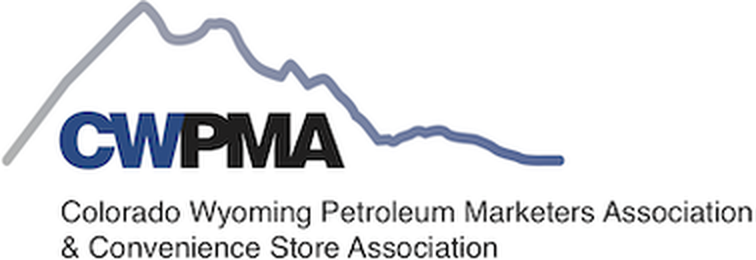RMFIA - We have been invited to participate in the rule development and implementation group hosted by the Department of Agriculture on the forthcoming requirement for stores of a certain size and capacity throughput to only sell cage free eggs. As a reminder, this law was passed by national animal right advocates who leveraged a ballot threat to force the legislature into this action. The association was successful in protecting smaller stores' ability to source local eggs without these restrictions -- see the highlighted sections below... If you are interested in this process please let me know.
Project Plan Overview
Project Name: Implementation of Cage-Free Regulations
Goal: Establish cage-free regulation and the overall regulatory process by April 17. (Easter) with the rules publicly effective July 30. Begin to socialize new regulatory requirements in early 2022 with heavy outreach once rules are publicly noticed.
Summary Regulatory Requirements in Colorado Law: HB20-1343 established enclosure requirements for farm owners or operators, prohibits the business owner to sell or transport for sale in Colorado eggs that are not from a cage-free farm, establishes a certification process for confirming farms are cage-free and outlines a recordkeeping process to affirm eggs sold in Colorado are from a certified farm.
Enclosure Requirements
● Farm owners must have enclosure measurements of no less than 1 sq. ft per egg-laying hen for all farmers or operators that produce eggs to be sold or distributed in Colorado beginning January 1, 2023.
● Farm owners will need to transition to a “cage-free housing system” as defined in statute by January 1, 2025.
● A cage-free housing system incorporates “usable floor space” at the ratio of 1 sq. ft. per egg-laying hen or a multi-tiered system or a ratio of 1.5 sq. ft. per egg-laying hen for a system that does not have vertical space or elevated platforms.
● The enclosure requirements do not apply to farming operations with 3,000 or fewer egg-laying hens.
Business owner requirements
● A business owner may not knowingly sell or transport for sale in Colorado eggs or egg products that were produced by a hen that was confined in a manner not compliant with the enclosure requirements described above.
● The business owner requirements do not apply if eggs sold are from farms with 3,000 or fewer egg-laying hens or:
○ Each business location owned by or operated by the business owner sells fewer than 25 cases of thirty dozen shell eggs per week or:
○ All business locations owned by or operated by the business owner or operator collectively sell fewer than one hundred cases of thirty dozen shell eggs per week.
Certification Process/Recordkeeping
● Farm owners must obtain a certificate from the CDA that affirms that eggs produced are compliant with regulations. The business owner must receive a copy of the certificate and retain a copy for their records.
● The CDA may rely on government or private inspection providers to ensure compliance with regulations. The CDA must approve the specific inspection or process and make sure that the verification provider is competent.
Overview of Process:
● Private inspection providers will submit an application to CDA to become approved by the CDA.
● Farm owners (including out of state operations) will have a government provider or private inspection provider conduct an examination of their operations to ensure compliance.
● Once certified, the farm owner will submit proof of compliance to the CDA and receive a CDA Certification.
○ CDA will provide copies of certifications for all compliance farm owners online.
● Farm owners will provide copies of their certification to any business owner that will sell, offer to sell, or transport for sale in Colorado. This would include any business owner in the supply chain.
● The farm owner will submit evidence each year that they are still in compliance with the regulations. CDA will issue subsequent certification for each calendar year.
● CDA inspectors will conduct periodic records inspections to affirm eggs can be traced back to a certified farm owner. This shall also include some aspect of on-pack labeling by the certified farm owner indicating compliance.
Roles for the Project:
● CDA Team: Mark Gallegos, Julie Mizak, Hollis Glenn, and others as needed, such as OIT, Communications Department
● Legal Councel (LC): Program attorney from the office of the AG. Will be responsible for writing the rules.
● Development Team (Dev. Team): Composed of 8-10 Subject Matter Experts (SME) from the industry including Colorado Egg Producers, United Egg Producers, retail, distribution centers, packing facility, or plant representatives. The Dev. Team will meet 5 times w/ the CDA Team to develop processes and rules between February and April.(Rougyl every two weeks)
Phases of Projects:
● Regulatory Development (Rule and Process): CDA will establish a core development team of subject matter experts (SMEs) to help fine-tune the process and establish the regulations.
● Rulemaking: The Development team will establish the basic rules and process with the final rules being noticed on April 15. The public hearing will be held on May 30-31 and effective June 30.
● Program Implementation. Staff will begin approving private inspection providers, setting up a website, certification process design, and staff training during the second half of 2022. In addition, CDA staff will begin to conduct outreach efforts to producers and business owners to make them aware of new requirements for 2023. Once rules are in place, CDA will continue to socialize the new rules and process during the second half of 2022



